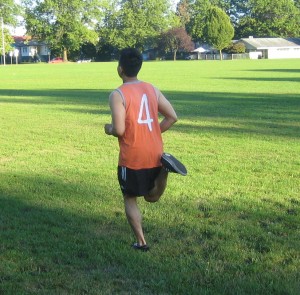Eczema can cause dry, red-colored patches of skin during early infancy that can last up to the toddlerhood stage or even beyond. Even though the skin condition is rarely serious, it can cause discomfort due to the itchiness.
In some cases, infections can occur if the child scratches on the eczema sores until they start to bleed out. Toddlers often inherit the tendency for eczema and dry skin from their parents while food allergies can contribute to the flare-up of the skin condition. Luckily, by early identification of food allergies which is an easy process, future flare-ups can be prevented. Additionally, sensitivity or allergies to certain products can also contribute to the occurrence of the skin condition.
https://www.youtube.com/watch?v=DVRVnvlvUPA
Food allergens
If eczema is noted after the child started eating solid foods, it might be food allergy that contributes to the skin condition. Luckily, most cases of food-related eczema are triggered by common foods such as milk, egg, wheat, fish, soy and peanuts.
These foods should be eliminated from the diet of the child for two weeks and check if the symptoms of eczema improve. You have to reintroduce these foods one at a time and wait at least four days between every food being introduced. Observe the child carefully and if the condition reappears upon reintroduction, it simply shows that food is a trigger.

Environmental allergens
Pollen, dust and pet dander typically trigger hay fever or asthma symptoms but can occasionally contribute to eczema as well. Identification and management of these allergies can be complicated and require allergy testing. A doctor should be consulted if you suspect environmental triggers are responsible for causing eczema. When it comes to allergies, you can learn more by enrolling in a first aid class today.
Chemical allergens
Dyes, fragrances and chemicals in body products and laundry detergents can also cause a flare-up of eczema. Young children should bathe without any soap while older children can bathe using a mild, natural soap. It is recommended to use a dye-free and fragrance-free laundry detergents and cleansers as well as avoid chlorine bleach if possible. When washing clothing, they should be double-rinsed to remove any leftover residue and avoid wool or rough fabrics.
Treatment for eczema
The eczema typically improves once the environmental and food allergens are avoided but it can flare-up occasionally especially during dry weather. You can moisturize the skin daily using a natural, hydrating lotion or cream.
The child should avoid extended exposure to the sun which can worsen eczema and sunscreen should always be applied when outdoors. A humidifier can be used during the winter season for those who live in areas that have dry climate.
Always make sure that the fingernails of the child are trimmed to prevent scarring from scratching or infection. Take note that children who have eczema are susceptible to bacterial skin infections. A doctor should be consulted if the eczema worsens or there is an increase in the redness and sores that ooze. For severe itchiness, the doctor will prescribe an oral antihistamine or a steroid cream.
